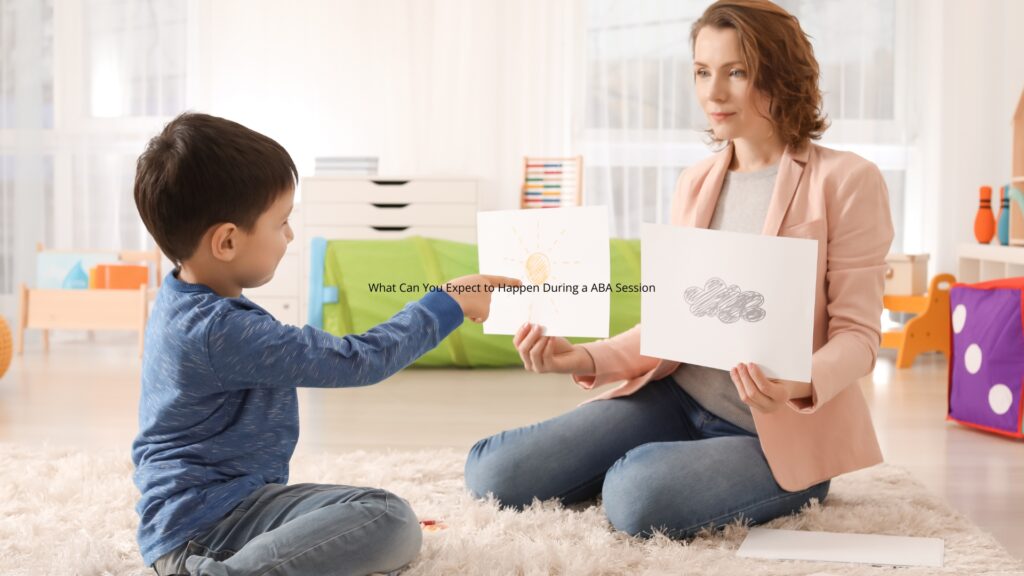Autism Treatment That Collaborates!
One of the most frequent questions about our children's Applied Behavioral Analysis therapy services is what can be expected during the initial visit. We understand your concerns. Autism therapy can be daunting to some families - especially when dealing with the plethora of challenges that autism can create in the family unit. These complex issues are where NYTPS is here to help. Not only do we evaluate the needs of the child but also the needs of the family and assign you a skilled BCBA therapist to help!
When you have your first appointment with NYTPS, expect a "Who, What, When, Where, Why?' session. In psychological jargon, this step is called "functional behavior assessment." During this step of the evaluation, your BCBA (Board Certified Behavior Analyst) therapist will talk and observe interactions with your family to see what skills your child possesses and which ones they need help to develop. The Behavioral Therapist will inquire with your family about the child's abilities, strengths, and challenges. They will then interact with your child and observe their communication, behavior, and life skills.
This process means that your BCBA therapist must be a bit of a detective and figure out the behavioral challenges and how to treat them effectively. The Behavioral Therapist assigned to your case will be looking for ways to collaborate with you and your family to find the most productive path to success for your autistic child.
Add Functional To Your Family's Vocabulary!
Many children with autism learn functional and social skills through the successful application of Applied Behavior Analysis therapy. During the first therapy session, our goal is to start your child on a path toward a more rewarding life. Our BCBA therapists work closely with your family to address your child’s unique needs.
During the initial session, your child's Behavioral Therapist will focus on and observe your child's social skills, communication, reading, and academic skills. They will also assess your autistic child's adaptive learning skills such as motor dexterity, hygiene, grooming, domestic capabilities, punctuality, and job completion competence.
The early presentation of ABA therapy has proven that it can significantly improve behaviors and skills and decrease the need for special services. At NYTPS, we understand that your goals for your child are not just the here and now. We know that your child's development is a significant concern for your family far into the future. This foresight allows your child's Behavioral Therapist to address all of the needs of your autistic child and help them live a life of success!
PROVEN ABA TECHNIQUES THAT LAST A LIFETIME!
Foundational ABA Strategies for Behavior Change
At NYTPS, our ABA therapists implement a variety of foundational strategies designed to reinforce desired behaviors and reduce challenging ones. These techniques are evidence-based and tailored to your child’s individual needs:
Positive Reinforcement
Therapists immediately reinforce appropriate behaviors to increase the likelihood that they’ll happen again. This might include praise, tokens, or access to preferred activities.
Negative Reinforcement
When a child engages in inappropriate behavior, therapists apply strategies that help the child understand how certain actions result in less favorable outcomes. The focus is on teaching replacement behaviors in a supportive way.
Prompting and Fading
Therapists use verbal or visual cues to guide the child toward appropriate responses. Over time, they gradually reduce these prompts to help the child respond independently.
Errorless Teaching
This approach minimizes the chance of mistakes by providing immediate and consistent cues. It helps children learn correct responses without frustration and builds confidence.
Skill-Building Techniques for Long-Term Success
In addition to behavior-focused strategies, our therapists use techniques that promote communication, independence, and the ability to apply skills across real-world settings:
Task Analysis
The therapist breaks down a skill into smaller, teachable steps, observes how the child performs each part, and evaluates which supports are needed to teach the full skill successfully.
Generalization
Children are supported in applying what they’ve learned in therapy across different environments and with different people, helping ensure that progress carries over into everyday life.
Behavior Contracts
Therapists may develop verbal or written agreements with the child outlining expectations and rewards. These clear, mutually agreed-upon goals help improve motivation and accountability.
Video Modeling
Children observe videos of peers or adults demonstrating a desired behavior or skill. This visual learning method is particularly effective for children with autism, who often learn well through imitation.
Picture Exchange Communication System (PECS)
For children with limited verbal communication, PECS offers a structured way to express wants and needs using picture cards. It enhances both expressive and receptive communication skills.
Peer-Mediated Social Skills Training
Children develop social skills through structured interactions with peers. This approach allows them to practice real-life communication and build confidence in social settings.
Behavioral Therapists at NYTPS use a variety of Applied Behavior Analysis techniques to correct problematic behaviors. Upon the first meeting with your family, your assigned BCBA therapist will discuss these with you to explore the best fit for your family!
